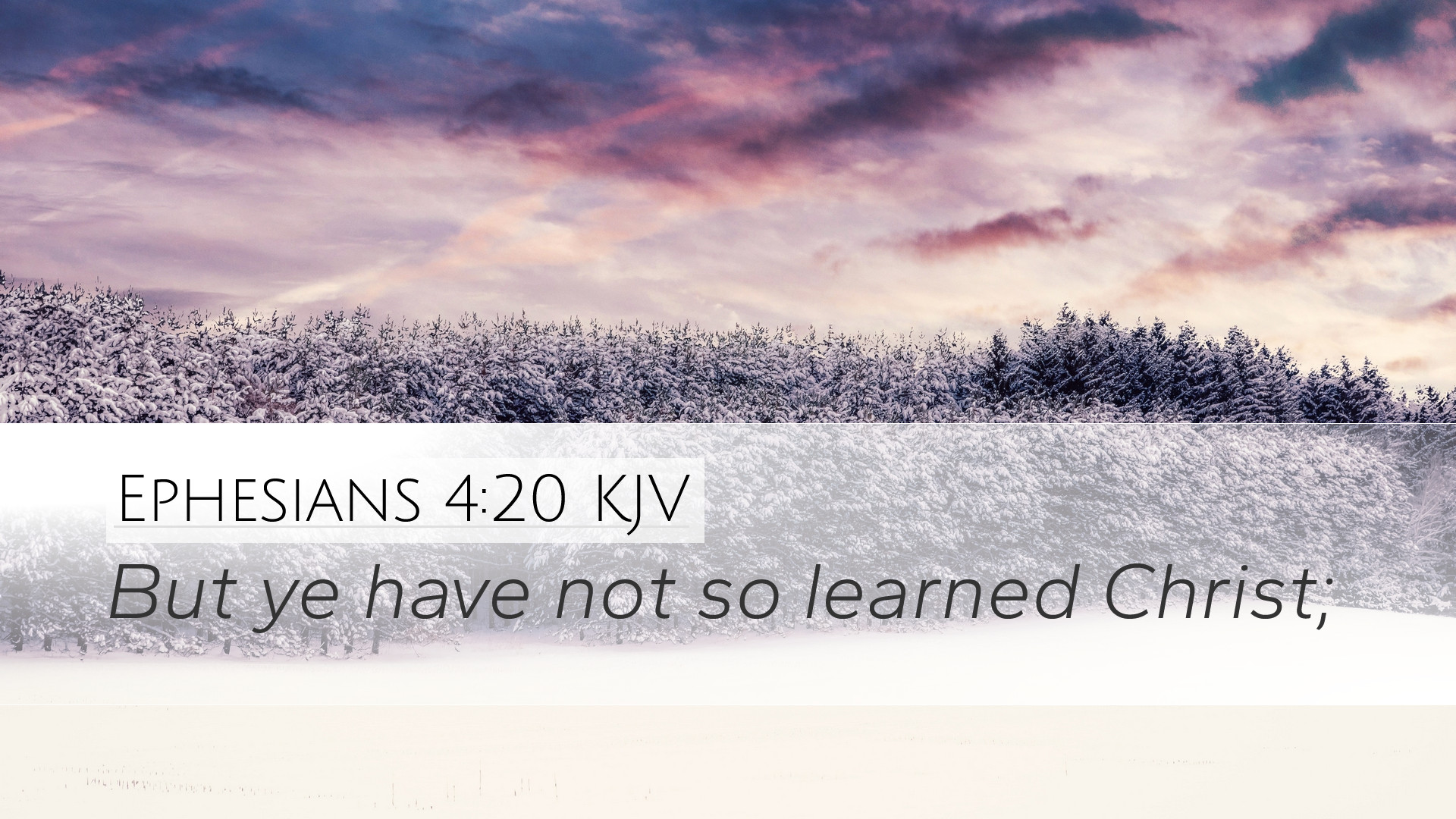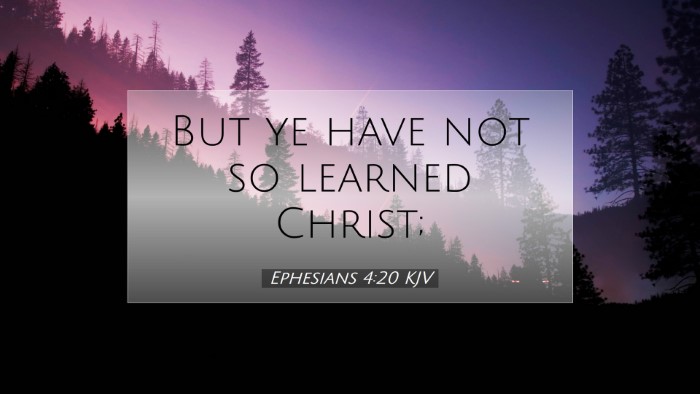Ephesians 4:20 Commentary
Verse Text: "But ye have not so learned Christ."
Introduction
This verse from Paul’s epistle to the Ephesians transitions from discussing the life of the Gentiles to emphasizing the transformative knowledge of Christ. It serves as a significant pivot in the discourse, wherein Paul clarifies the appropriate Christian conduct arising from a genuine relationship with Jesus.
Contextual Overview
The backdrop of Ephesians 4 involves Paul's discourse on the Christian's new identity in Christ. He begins to describe how believers ought to walk in a manner worthy of their calling (Ephesians 4:1). Verses 17-19 outline the futility of the mind of those outside the faith, who are alienated from God due to ignorance and hard-heartedness. Paul, as a minister of the Gospel, is now contrasting this lifestyle with that which is rooted in Christ.
Exegesis of Ephesians 4:20
- Learning Christ: The phrase "ye have not so learned Christ" implies that the teachings connected with Christ are transformative and distinctive.
- Matthew Henry emphasizes that the knowledge of Christ should fundamentally change our way of thinking and living.
- Albert Barnes notes that to learn Christ is not merely intellectual but encompasses a relational understanding—an intimate apprenticeship in His ways and teachings.
- Contrast with Gentiles: This verse is juxtaposed against the prior lifestyle. The Gentiles live without understanding, but believers have been introduced to a new way of life through Christ.
- Adam Clarke observes that this salvation experience yields a different framework and moral compass, creating a profound shift in behavior and attitude.
- The implication is that knowing Christ leads to living differently than the surrounding culture.
Theological Implications
This verse presents important theological reflections on the nature of learning in a Christian context. It signifies more than an accumulation of information; it represents a total surrender and conformity to the likeness of Christ.
- Sanctification Process: The learning of Christ is intricately linked to the process of sanctification—becoming more like Him in character and action.
- Matthew Henry articulates that genuine learning leads to a practical ethos that reflects Christ’s character in everyday activities.
- Relationship over Religion: Paul is emphasizing the importance of relationship rather than mere religious observance.
- Albert Barnes notes that true Christianity is characterized by a deep relational knowledge of God through Christ, as opposed to ritualistic legalism.
Application for Believers
For pastors, students, and theologians, the implications drawn from Ephesians 4:20 underscore vital areas of application:
- Reflective Living: Believers are called to reflect on their lives as to whether they align more with the society depicted in verses 17-19 or with the new identity in Christ.
- Continued Learning: The ongoing journey of learning Christ is essential. This calls for regular engagement with Scripture, fostering spiritual disciplines, and communal worship.
- Transformative Power: Understanding the transformative power of Christ should inform preaching, teaching, and personal testimony.
Conclusion
Ephesians 4:20 is a powerful reminder that knowledge of Christ is the foundation for Christian living. It disrupts the old way of life defined by futility and ignorance and instead invites believers into a profound and growing relationship with Jesus that should radiate through their lives.


